Just like humans, guinea pigs do fart! If you’ve ever heard a tiny little toot, or even a longer sound like a balloon releasing air and flying around, that was your guinea pig letting out some gas. This is completely normal, and even necessary.
Read on to learn more about guinea pig farts and how too much gas can become dangerous for them.
Why do guinea pigs fart?
It’s all a natural part of the digestive system and its functions! Air comes in one way and must escape the other, so it results in a guinea pig fart! However, it’s a little less simple than that.
There are processes that occur during digestion in guinea pigs that create gasses that need to be released from the guinea pig anus, in addition to the air that they swallow when they’re eating. The technical term for it is flatulence, and this is a necessary occurrence for guinea pig digestion. However, if your guinea pigs are unable to pass the gas, the buildup can become problematic for them and it turns into bloating.
What is bloating?
Bloating occurs when there’s a buildup of gasses that aren’t able to be passed through your guinea pig’s body. It not only becomes uncomfortable for the piggies, but it can be painful and eventually can be fatal in the worst cases. When the digestive system has too much gas, the gas expands and can start to cut off blood supply to organs, rendering them unable to function normally. In particular, it slows down the gastrointestinal tract.
Put simply, their body can’t process food or its nutrients, which means their organs don’t get what they need to do their jobs. Organs shutting down almost certainly leads to death, which is why it’s important that your guinea pig is able to properly pass gas.
Bloating in guinea pigs is comparable to when humans are bloated! It usually causes your stomach to hurt and even affects your appetite and your ability to eat. While humans are usually able to eventually pass the gas or get relief somehow, it isn’t quite as easy for guinea pigs.
What are symptoms of bloating in guinea pigs?
There are some symptoms that you can look out for to identify whether your guinea pig might be suffering from an excessive buildup of gas. One that is the surest sign of bloating is a distended abdomen or belly. This means that their belly will be firm to the touch because of the gas buildup. This can also cause that area to be pretty sensitive and your guinea pig will likely experience pain if you were to gently press on it with one of your fingers.
When guinea pigs are experiencing bloating, they will also have a decreased appetite because eating is uncomfortable when bloated, which you know as a human that might get bloated sometimes! This symptom goes hand in hand with a decreased amount of water that they are drinking.
There will also be constipation and either decrease or complete halt in pooping. You will be able to tell that your guinea pig is bloated if they’re breathing faster and when their heart rate is up as well.
Another symptom of bloating will be an increase in their hiding behaviors. As you know, in the wild and in general, guinea pigs are considered prey animals and are always alert and on guard. This also means that if they are sick, injured, or overall weakened in any way, they will hide that fact in order to not make themselves vulnerable to predators.
This behavior will still stick even when they’re living in your home and because guinea pigs can’t speak and tell you when they’re not feeling well, it’s important that you’re staying observant and identifying the signs of them not being OK as soon as possible, so you’re able to get them the help they need as soon as possible as well.

What are the causes of bloating in guinea pigs?
Now that you know the signs of bloating, you’re probably wondering what is causing the buildup of gas, and there’s a few possibilities.
One is a sudden change in diet! This makes sense because generally guinea pigs need a lot of time to adjust to change, and this is especially true when it comes to their foods. That’s why it’s important to slowly introduce foods to your guinea pig in small amounts.
However, if their body’s first reaction to it is bloating, this is a sign that the food is not agreeable with your piggy, or you’ve given them too much. If you decrease the amount that you give them and they are still bloated, then we recommend completely forgoing the new food—it’s just not working!
Another cause could be that their diet isn’t balanced enough. While guinea pigs are eating a few things in their daily meals, whether it’s hay, fruits and vegetables, pellets and water, the hay should make up the largest portion of their diet, as they are munching on it all day.
Hay should be provided in large, essentially unlimited quantities at all times of the day. Depending on how you feed your guinea pigs hay, whether it’s in piles, racks, or feeders of some kind, you need to make sure that they never run out.
To eliminate this worry of running out of hay in the cage, we recommend our GuineaDad Hay Bar and GuineaDad Hay Box, because you can set a few of these densely packed feeders into your guinea pigs’ cages and leave them be. Just one Hay Box can last two guinea pigs over a week, up to nine days in some cases.
There might be cases where your guinea pigs are eating too much of certain fruits and vegetables, and it could be that their body can’t handle the amount and the nutrients they’re getting from those specific types of produce. It’s also important to make sure that if you’re feeding your guinea pigs produce that it’s always fresh. Discard any leftovers that aren’t eaten right away, because old fruits and veggies will produce gasses in their belly if they consume them.
Make sure that your guinea pig is also drinking plenty of water, and make sure it’s clean and their bottle is constantly filled! If they don’t have enough fluids, it can cause their gastrointestinal tract to slow down, which leads to bloating.
It’s also important to make sure that your guinea pig is getting enough exercise! If they’re inactive, it can cause the GI tract to slow down as well. Make sure their cage is large enough for them to run and zoom around, and give them some supervised floor time in your home as well.
What to do if your guinea pig is bloated
A visit to your vet could be in order! They can prescribe medications and antibiotics to get your guinea pig’s GI tract back in order and functioning properly. They’ll also encourage your piggy to drink more water, which can help.
It’s important that if you notice signs of bloating that you get medical advice quickly! Left untreated, guinea pig bloating can be fatal. This goes for any medical issues that your guinea pig may have—as soon as you notice something, you should act quickly in order to keep your guinea pig safe and healthy.


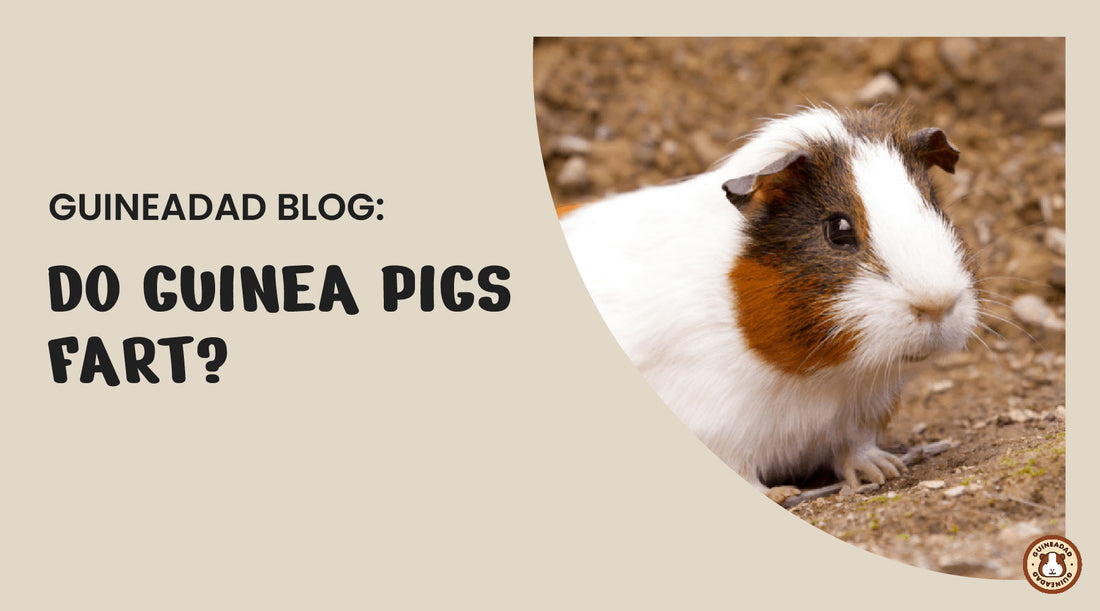









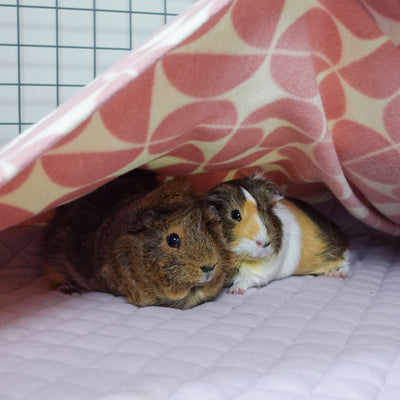










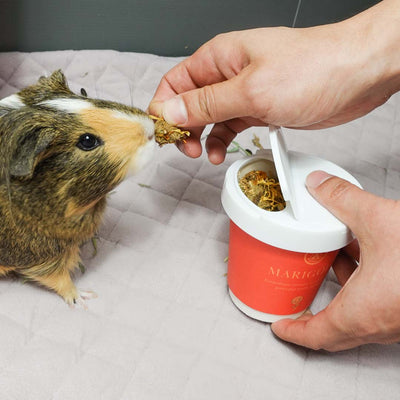
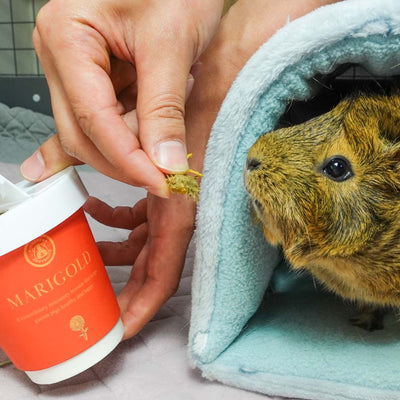
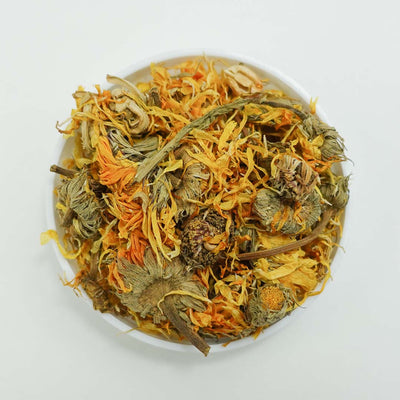

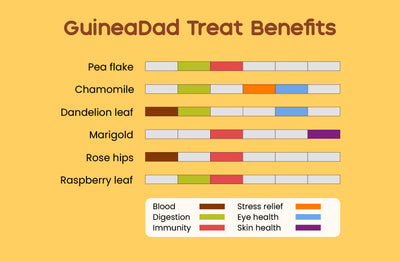

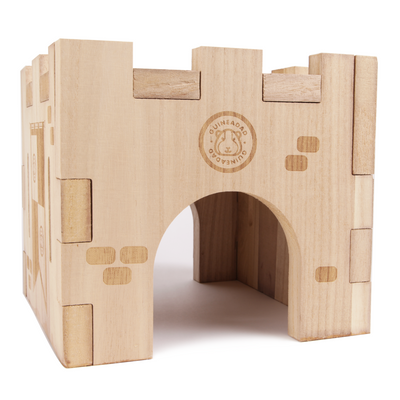
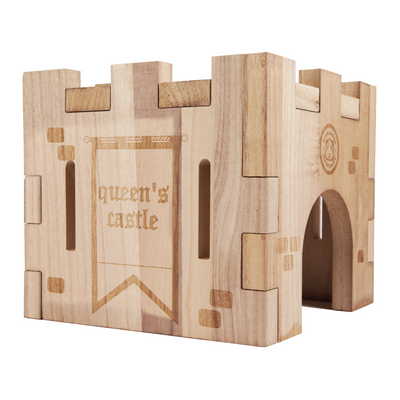
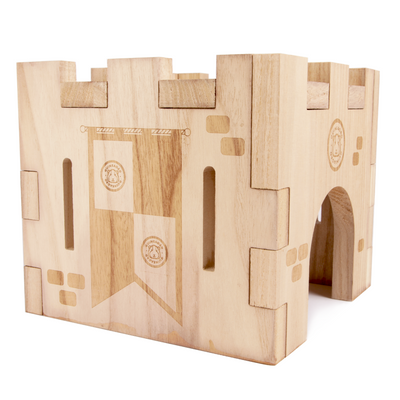
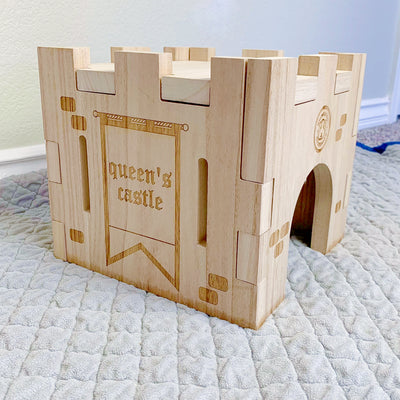
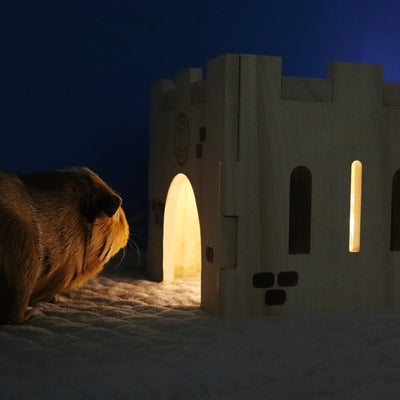
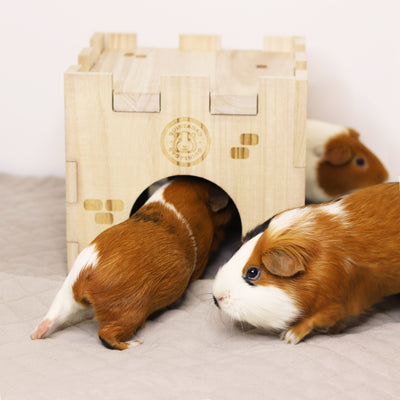
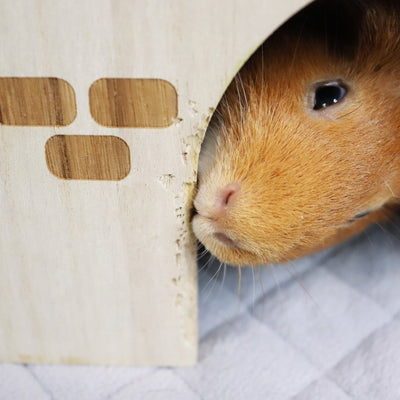
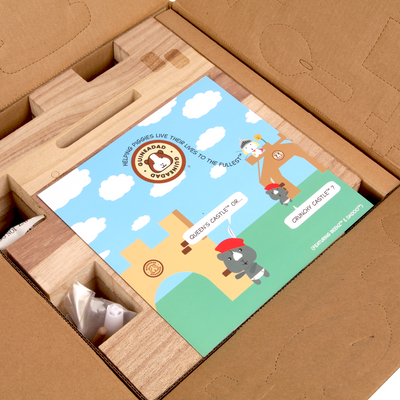
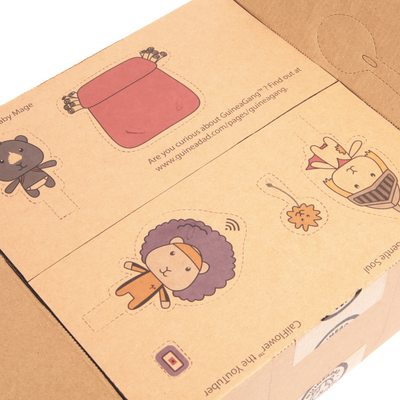
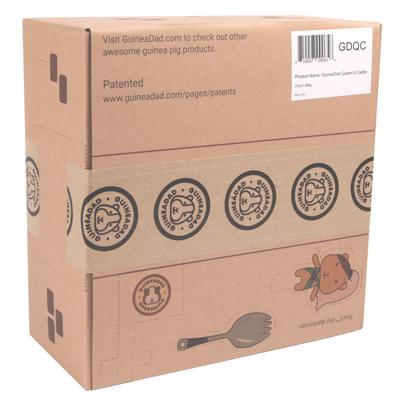
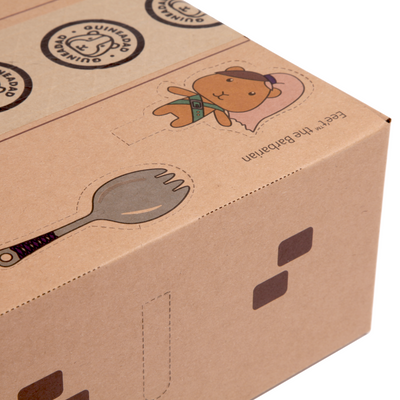





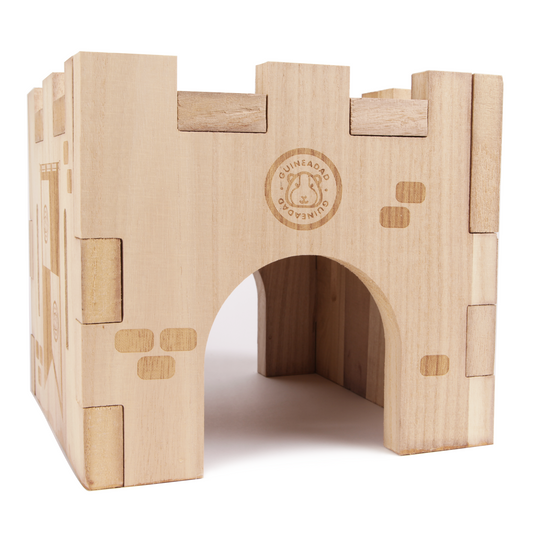

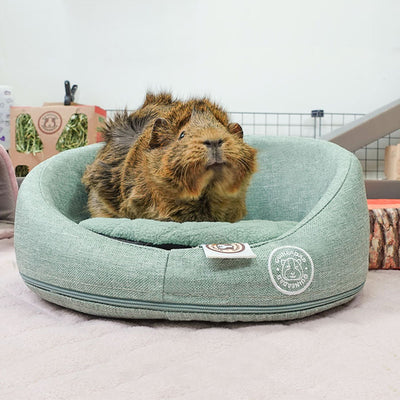
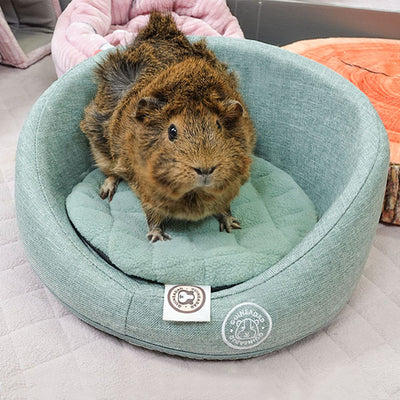
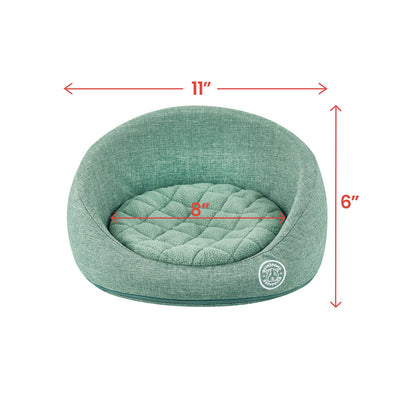

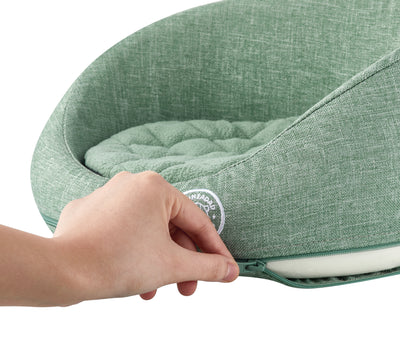
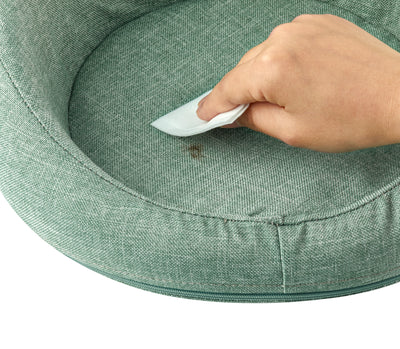
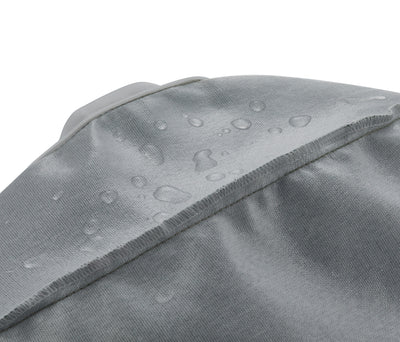
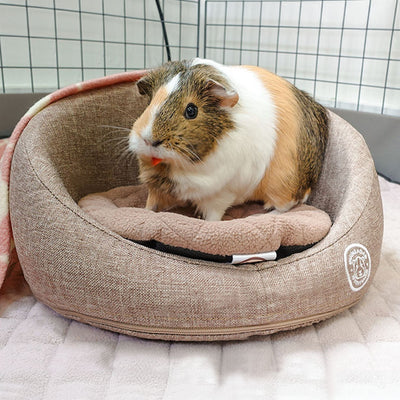
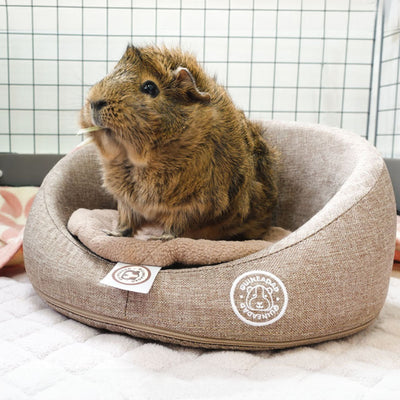
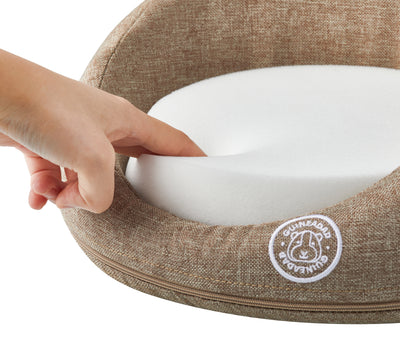
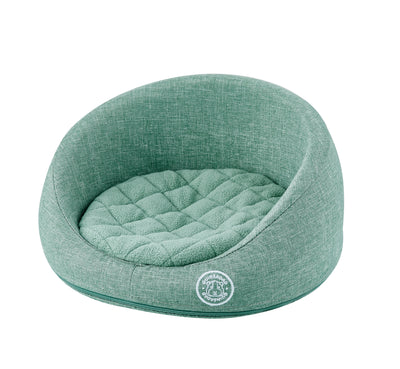
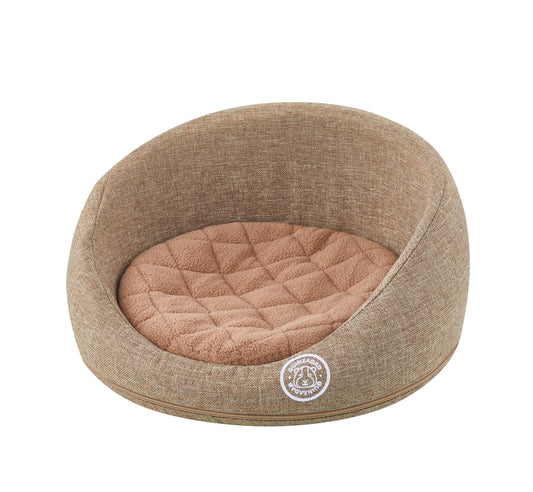


1 comment
haha I don’t here a toot I just get a whiff of the “big one”.😭😭😭